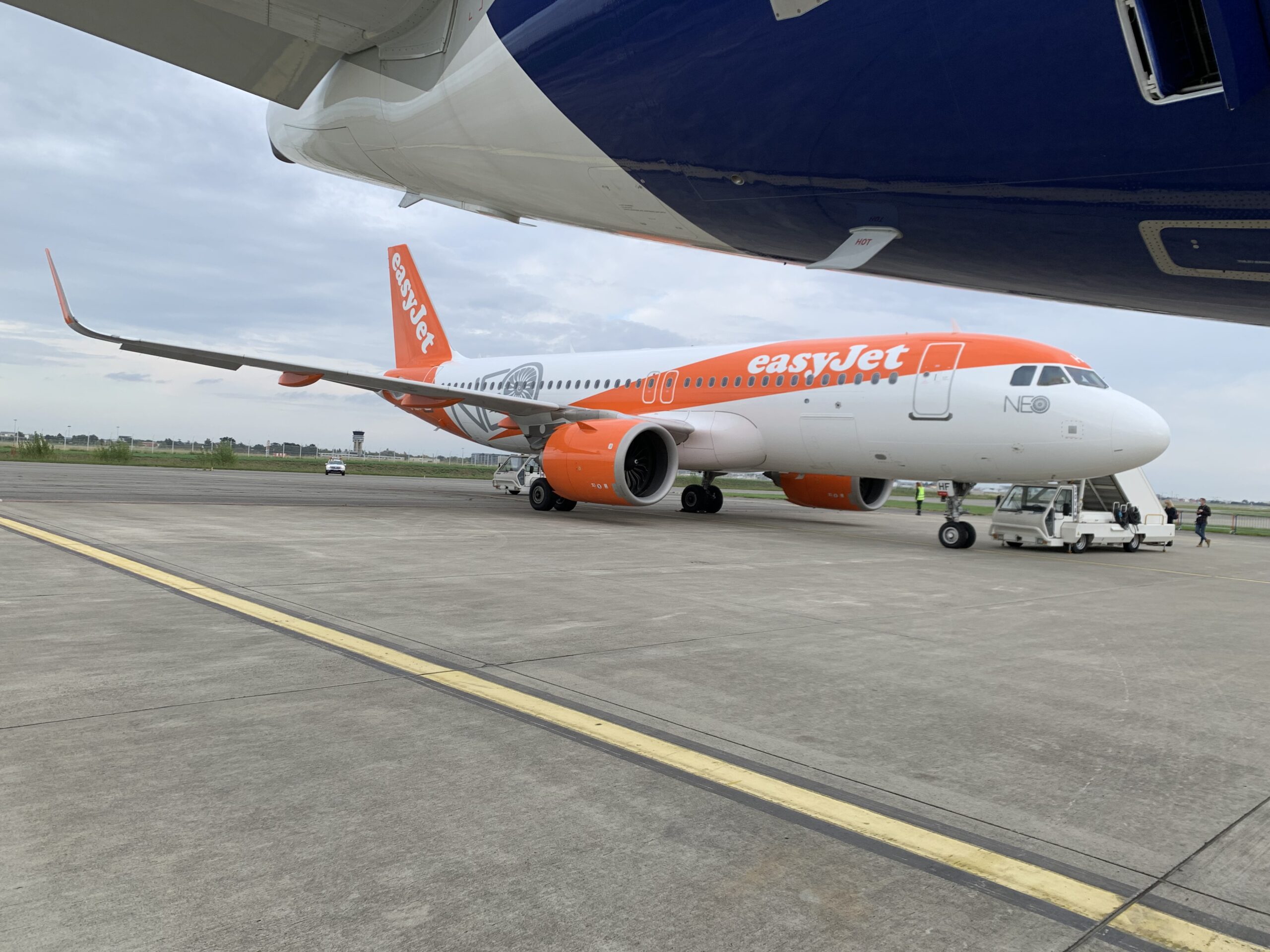
IMG 9242 scaled
Unforeseen economic headwinds apart, easyJet is pretty optimistic that its full-year pre-tax headline result will exceed £260 million this financial year 2023 compared to a £-178 million loss in FY22. The European airline is bullish after seeing strong forward bookings for the coming summer period, it said in an HY1 trading update on April 18. Its last profitable year was 2019 with £430 million. easyJet’s FY23 is set to return to a profit again.
The airline’s financial year covers September to September, so HY1 includes the period until March 31. Based on preliminary, yet detailed, numbers, easyJet expects a six-month pre-tax loss of £-415 million compared to £-545 million in HY1 FY22. The definitive result, which will be released on May 18, could be between £-405 and £-425 million. The airline was already optimistic for HY1 after reporting the Q1 results in January.
Total revenues for the period are £2.690 billion versus £1.498 billion in FY22. Passenger revenues increased to £1.750 billion from £985 million. Ancillary revenues improved to £765 million from £458 million, resulting in forty percent higher revenues per seat at £66.46 offset by £77.59 in costs per seat. easyJet Holidays also did well and generated £175 million in revenues, up from £55 million.
Headline EBITDAR costs were 62 percent up to £2.760 billion, with fuel costs 113 percent higher to £770 million. Headline EBIT was £-395 million compared to £-486 million in the same period last year.
easyJet’s second quarter (January-March) saw 35 percent more passengers to 15.6 million, with March being the busiest month. During the Easter weekend, the airline operated 1.600 daily flights and had capacity in the UK back to pre-pandemic levels. The network was slightly affected by ATC strikes in France, with just 0.2 percent of the flights canceled during the quarter. In Q2, the airline had 17.7 million seats available and filled them with a load factor of 88 percent.
With the booking trend continuing to be positive toward the summer, easyJet CEO Johan Lundgren is upbeat about the FY23 results: “We see continued strong booking momentum into summer as customers prioritize spending on travel and choose airlines like easyJet offering the best value and destination mix, as well as easyJet holidays which is continuing its steep growth trajectory as the fastest growing holidays company in the UK. All of this means easyJet expects to outperform FY23 market expectations.”
In the current Q3, capacity will grow by seven percent year on year to 26 million seats. HY2, which ends on September 30, should see 56 million seats available, an increase of nine percent year on year and back to almost pre-pandemic levels.
Views: 1



